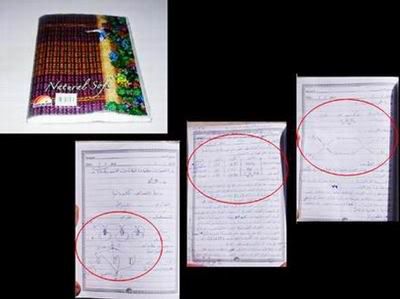Dan Rather's Departure from CBS News
Dan Rather's Departure from CBS News
Friday, November 26, 2004
This is a partial transcript of "Special Report With Brit Hume," Nov. 23, 2004, that has been edited for clarity.
BRIAN WILSON, GUEST HOST: Well, the big question. Is Dan Rather (search ) leaving of his free will or being shoved out the door? And what role does this controversy over those bogus National Guard documents Rather reported on during the campaign have to do with all this?
For more, we turn to David Blum, media writer, television critic, journalism teacher; he’s also the author of "Tick... Tick... Tick...: The Long Life & Turbulent Times of 60 Minutes."
David, thanks for joining us. What’s your assessment first blush of his announcement today, that Dan Rather will leave oh, March of next year?
DAVID BLUM, "NEW YORK SUN"/TV CRITIC: Well, I think this announcement was designed for Rather to leave his job in advance of the issuance of the report; the investigation into what happened in September on that now infamous National Guard (search ) story. Rumor has it that, that report is going to be devastating.
And I think Rather saw the opportunity to leave a little bit more gracefully by announcing his departure now, than having the report come out and having it look as though the two actions are directly related, even though they are, obviously directly related.
WILSON: Well, David, anybody who has been around journalism knows there’s the thing called "news management," where you try to manage bad news. And so one would guess that a good time to release really bad news would be around the Thanksgiving holiday, when people’s attention is diverted, when they’re traveling through out of pocket. If Dan Rather made this announcement today, would you expect to see this report come out, let’s say, I don’t know the day after Thanksgiving?
BLUM: Possibly during halftime at the Lions’ game on Thursday. I don’t know. Whenever it is most likely that media reporters are busy eating or drinking elsewhere.
You know, this is going to be very bad news for CBS. And in fact, the Rather departure is bad news in the sense that they have no successor named. Whereas Tom Brokaw (search ) is being carried down the street on everyone’s shoulders and talked about as a presidential candidate, Dan Rather is experiencing no such elation today. And there’s no successor.
WILSON: Well, let’s talk about the bench; people who might be on the bench who might step up and fill the void. You hear two names a lot of times. John Roberts, who has done his time at CBS for many, many years. And then the other name you hear is Scott Pelley, a former White House correspondent. We know Scott in this town, a guy who is doing his time now on "60 Minutes." Which of those two guys do you think might have the lead?
BLUM: You know, it’s hard to say. As your pictures reveal, as good reporters as they are, they do appear to be born and bred on an anchor farm somewhere.
(LAUGHTER)
BLUM: And you know, I don’t exactly think that either one of them have quite the stature of a Rather, or Jennings or Brokaw. Not to discredit them, they’re good journalists. But you know, the day when people turn to their anchormen for comfort in a difficult moment, such as a day like a 9/11 or Kennedy assassination (search ) are past. I don’t see Americans turning to Scott Pelley for comfort, as good a journalist as he might be. And that’s as deep as their bench is, two men. A little sad, I’d have to say.
WILSON: Well, listen to this sound bite. It was in the package. Listen to it one more time. Here’s Andy Rooney and what he had to say -- I’m sorry. Excuse me. I’m sorry. I thought we had that. We’ll not go to there.
But Andy Rooney saying well, look, he was in the chair longer than Cronkite was.
BLUM: That’s right.
WILSON: And maybe it’s time for him to move on. Kind of strange to hear that coming from a guy who’s been in the chair for what; about 106 years?
(LAUGHTER)
BLUM: Well, that’s fair enough. Although, you know, the fact is that he’s right. Rather held that job for 24 years. It’s long since been time for him to go. You know, people who are feeling sorry for Dan Rather today really shouldn’t. He’s had a quarter century of multimillion-dollar salary, high-profile job. You know, it’s time to move on and give somebody else a chance and -- it’s a third place now. It’s been third place for a long time. Under any other circumstances, the anchorman would have been forced out. But Dan Rather is the biggest star CBS has and they were not about to push him out without some plan for succession.
WILSON: You know as well as I do that one of the things that is important in TV is that you have a following, that you have some credibility, and that you have name recognition. With Dan Rather leaving in March and Tom Brokaw leaving now, are we going to see what some have called the further decline of the big network dinosaurs?
BLUM: Well, I’m leaving here to go to the big party at Peter Jennings’ house later.
(LAUGHTER)
BLUM: You know, it’s really not a happy day for the future of the evening news. You know, this is already to some extent an anachronism. Most people don’t wait until 6:30 in the ������������������������������������������������������������������������������������������������������������������������������������������������������������������������������������������������������������������������������������������������������������������������������������������������������������������������������������������������������������������������������������������������������������������������������������������������������������������������������������������������������������������������������������������������������������������������������������������������������������������������������������������������������������������������������������������������������������������������������������������������������������������������������������������������������������������������������������������������������������������������������������������������������������������������������������������������������������������������������������������������������������������������������������������������������������������������������������������������������������������������������������������������������������������������������������������������������������������������������������������������������������������������������������������������������������������������������������������������������������������������������������������������������������������������������������������������������������������������������������������������������������������������������������������������������������������������������������������������������������������������������������������������������������������������������������������������������������������������������������������������������������������������������������������������������������������������������������������������������������������������������������������������������������������������������������������������������������������������������������������������������������������������������������������������������������������������������������������������������������������������������������������������������������������������������������������������������������������������������������������������������������������������������������������������������������������������������������������������������������������������������������������������������������������������������������������������������������������������������������������������������������������������������������������������������������������������������������������������������������������������������������������������������������������������������������������������������������������������������




